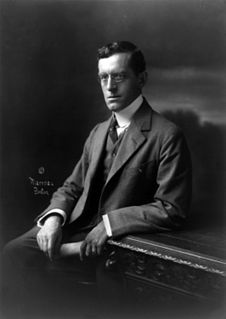A Quote by Christopher Hitchens
This huge and terrible industry [the slave trade] was blessed by all churches and for a long time aroused absolutely no religious protest. . . . In the eighteenth century, a few dissenting Mennonites and Quakers in America began to call for abolition, as did some freethinkers like Thomas Paine.
Related Quotes
Thomas Paine, so celebrated and so despised as he traveled through the critical events of his time, has long appealed to biographers. Paine was present at the creation both of the United States and of the French Republic. His eloquence, in the pamphlet 'Common Sense,' propelled the American colonists toward independence.
After the Moslem Africans lost control over Spain, they began to prey on the Africans further to the south. They destroyed the great independent states in West Africa, and subsequently set Africa up for the Western slave trade and the Arabs were in the slave trade before Islam and they are still in the slave trade.
In the nineteenth century some parts of the world were unexplored, but there was almost no restriction on travel.:; Up to 1914 you did not need a passport for any country except Russia.:; The European emigrant, if he could scrape together a few pounds for the passage, simply set sail for America or Australia, and when he got there no questions were asked.:; In the eighteenth century it had been quite normal and safe to travel in a country with which your own country was at war.
It hurt the economic historians, the Marxists and the fabians, to admit that the Ten Hour Bill, the basic piece of 19th century legislation, came down from the top, out of aa nobleman's private feelings about the Gospel, or that the abolition of the slave trade was achieved, not through the operation of some "law" of profit and loss, but peurlet as the result of tyhe new humanitarianism of the Evangelicals.
E have men sold to build churches, women sold to support the gospel, and babes sold to purchase Bibles for the poor heathen, all for the glory of God and the good of souls. The slave auctioneer's bell and the church-going bell chime in with each other, and the bitter cries of the heart-broken slave are drowned in the religious shouts of his pious master. Revivals of religion and revivals in the slave trade go hand in hand.
But you know, where did the Brontes go to college? Where did George Eliot go to college? Where did Thomas Paine or Thomas Jefferson or George Washington go? Did George Washington go to college? This idea which we now have that people ought to have these credentials is really ridiculous. Where did Homer go to college?
I began to understand that 'America' in reality belonged to the whole world and not just to Americans. The idea of America had already been invented by the philosophers, the vagabonds, the dispersed of this earth, long before the Spanish ships got there. Those whom we call Americans have only rented it for a time. If they behave badly, we can discover another 'America'. The contract can be canceled at any time.



































